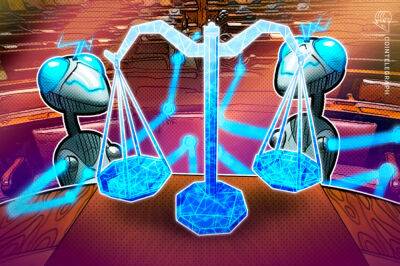PSA to crypto world: Lock in some gains before going Metaverse
In his monthly crypto tech column, Israeli serial entrepreneur Ariel Shapira covers emerging technologies within the crypto, decentralized finance (DeFi) and blockchain space, as well as their roles in shaping the economy of the 21st century.
The impending Metaverse dominates crypto headlines as analysts almost obsessively race to predict what innovations the new digital world will bring. Facebook’s rebranding to Meta seems to be the tip of the iceberg, as Microsoft — and some other Big Tech companies — announce their plans to integrate into the Metaverse.
The hype around the Metaverse is only natural. There’s no question the humans of the future will spend more of their time than some would care to admit wearing a VR headset. But the keyword here is future — most Metaverse developments are building a digital world for which the vast majority of humans won’t have use for many years to come. It’s important to save energy and attention for the developments coming out of mainstream crypto/DeFi because they are already massively transforming economic incentives.
Take Ripple (XRP), which was sued by the U.S. Securities and Exchange Commission (SEC) for allegedly offering an illegal securities offering through sales of its cryptocurrency token, XRP. The company that steered the advantages of blockchain away from the “let’s overthrow the banks” crowd to the “let’s work with them” crowd has come a long way from the days in which many thought a Federal lawsuit would be the last nail in the coffin of crypto as an industry, recently having taken an upper hand in the lawsuit. Several thousand miles south of the United States, Bitcoin (BTC) has become the focal point of a city in El Salvador.
Related: SEC vs. Ripple: A predictable but
Read more on cointelegraph.com






![‘Use cases in things like Ethereum [ETH] haven’t really even been played’ - ambcrypto.com](https://finance-news.co/storage/thumbs_400/img/2022/5/1/23865_cjs.jpg)


![ApeCoin [APE] swings to new ATHs and whales are going bonkers? - ambcrypto.com - city Santiment - city Sandbox - city Santimentit - city Santimentadd - city Santimentif](https://finance-news.co/storage/thumbs_400/img/2022/4/30/23790_ibc.jpg)












